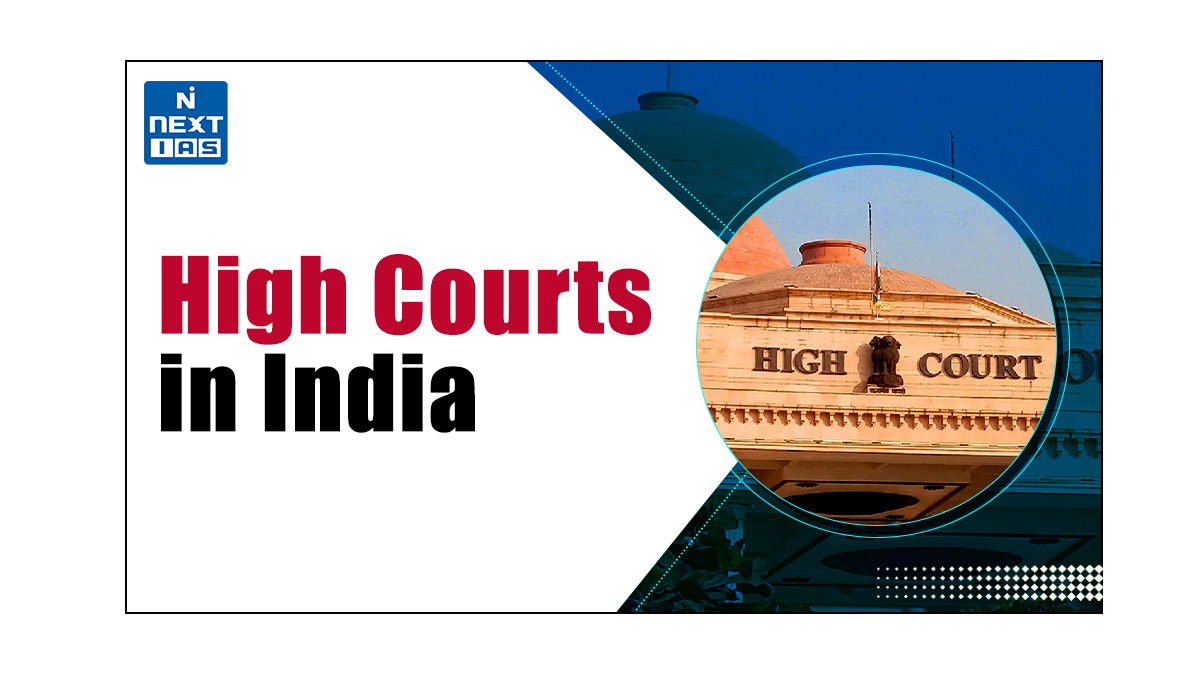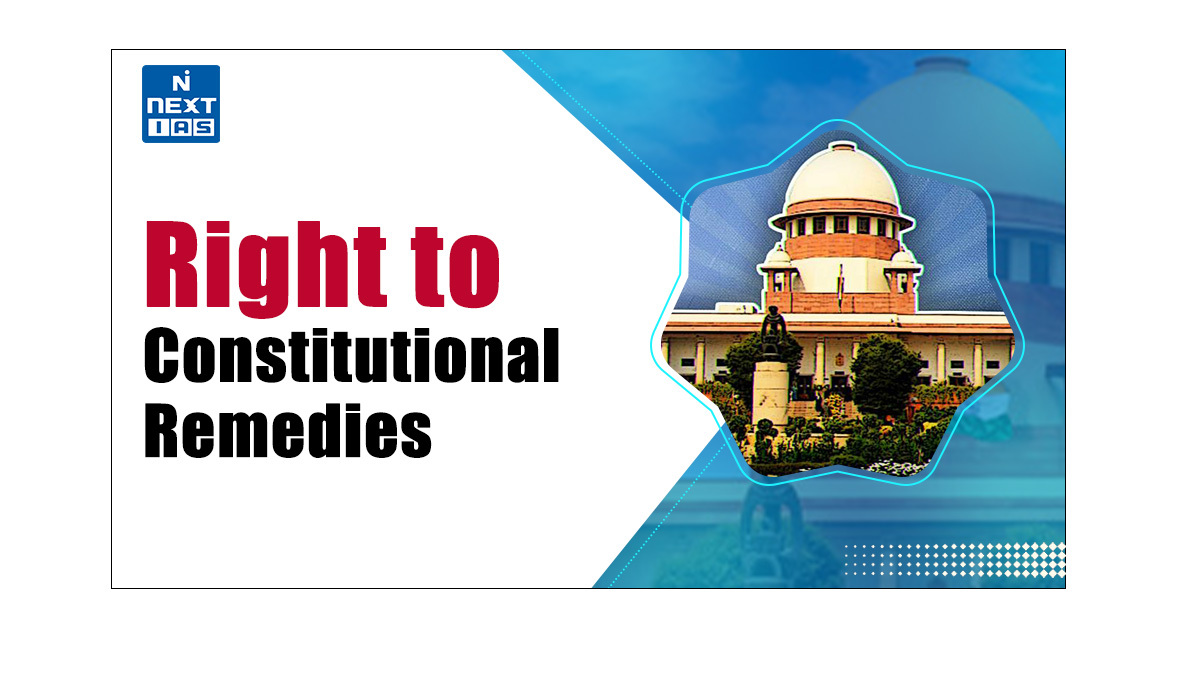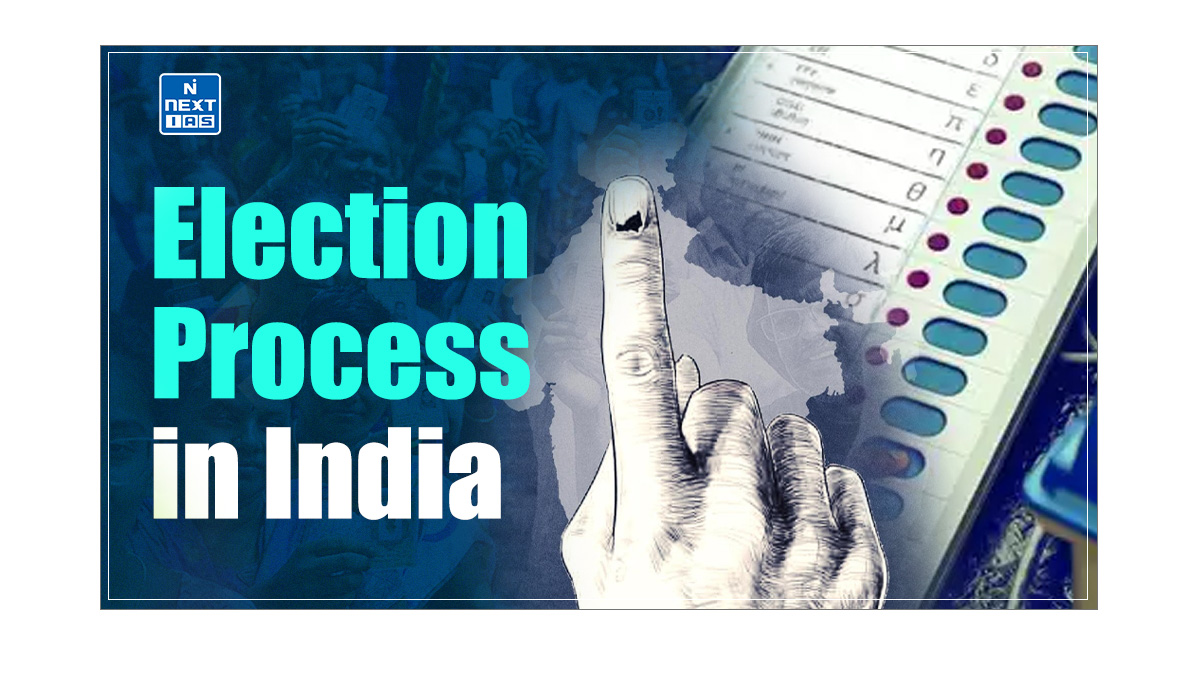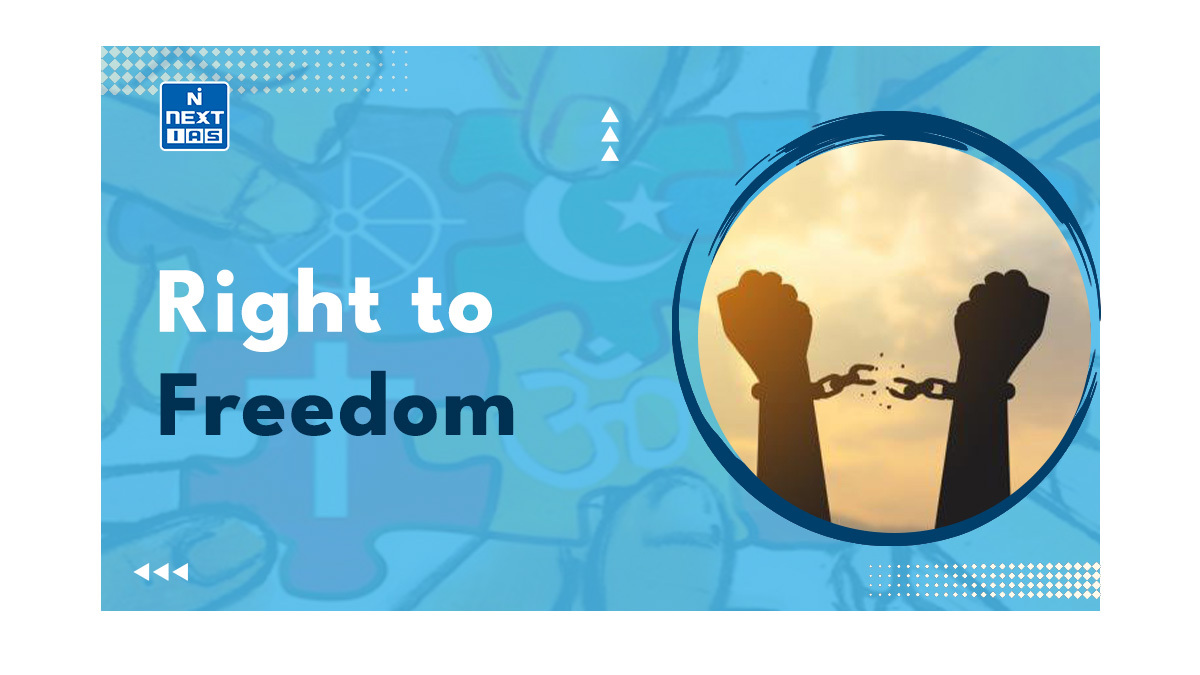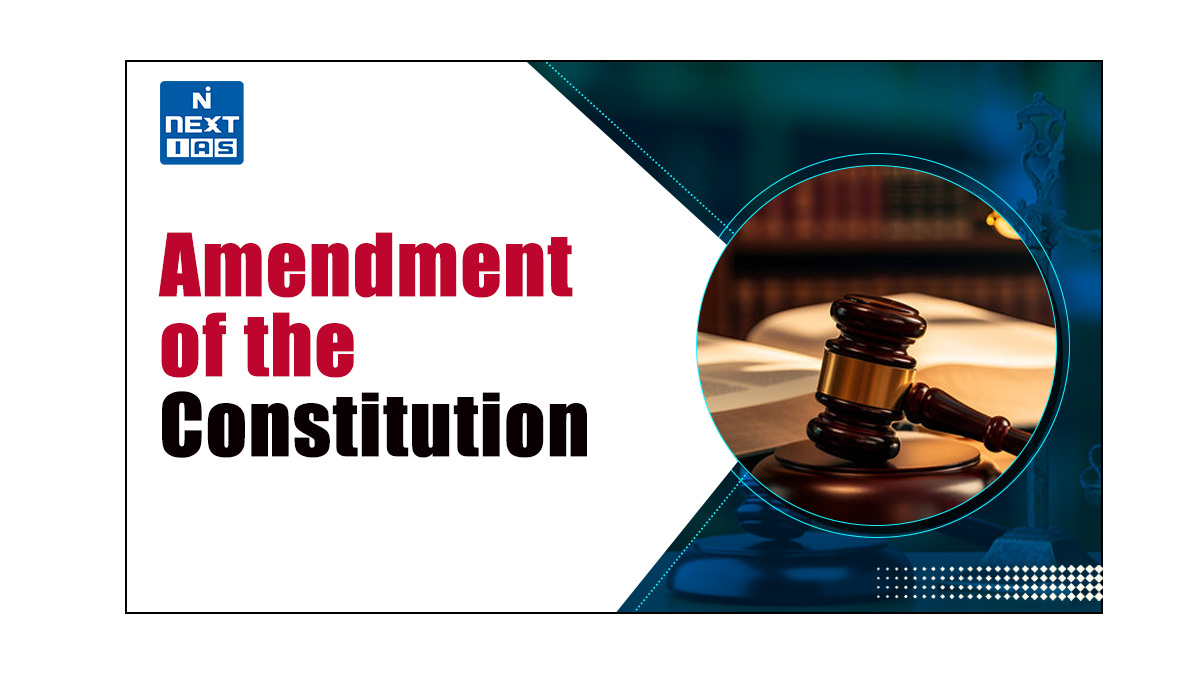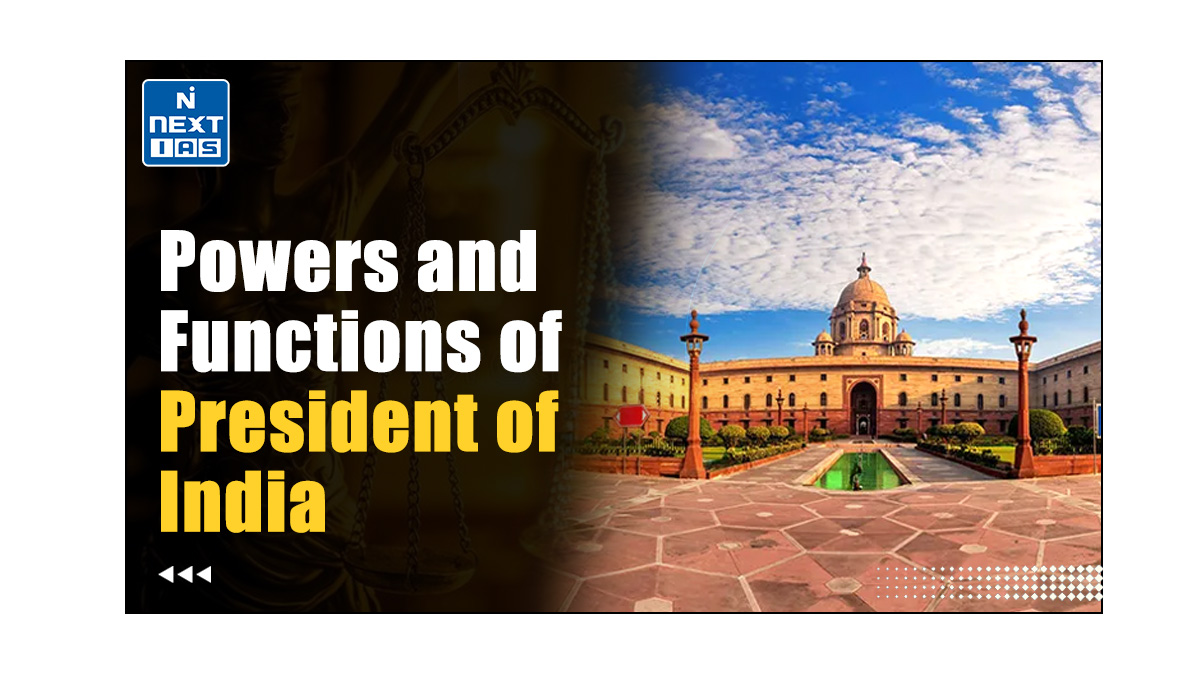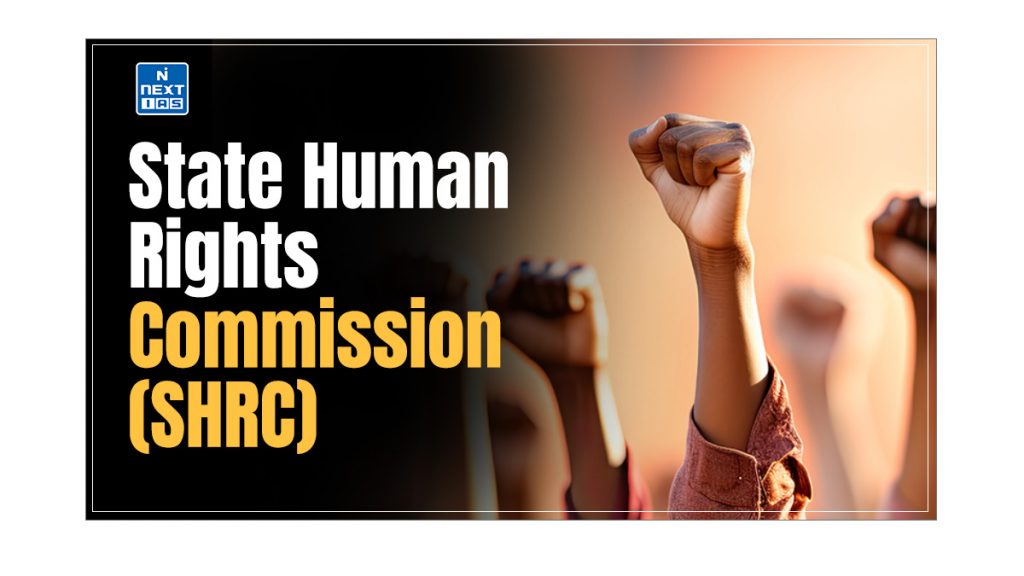
The State Human Rights Commission (SHRC), a statutory body in India, stands at the forefront in the noble pursuit of safeguarding, protecting, and promoting human rights across the State. By safeguarding liberties, advocating for justice, and fostering a culture of respect for human rights, the SHRC not only protects individuals but also strengthens the foundations of democracy. This article of NEXT IAS aims to study in detail the State Human Rights Commission (SHRC), including its composition, powers, functions, challenges faced by it, and other related aspects.
About State Human Rights Commission (SHRC)
- The State Human Rights Commission (SHRC) is a statutory body in India, established under the provisions of the Protection of Human Rights Act of 1993.
- Thus, it is not a constitutional body.
- It serves as the watchdog of human rights within the State.
- It is tasked with safeguarding rights relating to life, liberty, equality, and dignity of individuals, which are guaranteed by the Constitution of India and embodied in the international covenants.
- The Headquarters of the State Human Rights Commission shall be at such place as specified by the State Government through official notification.
What are Human Rights?
| – As per the UN definition, ‘Human rights are those rights that are inherent to all human beings, regardless of race, sex, nationality, ethnicity, language, religion, or any other status’. – These human rights are entitled to everyone without any discrimination. – Human rights include the right to life and liberty, freedom from slavery and torture, freedom of opinion and expression, the right to work and education, and many more. – Human Rights Day is observed on 10 December every year. |
Objectives of State Human Rights Commission (SHRC)
The specific objectives of the establishment of the State Human Rights Commission (SHRC) are as follows:
- To strengthen the institutional arrangements through which human rights issues could be addressed in their entirety in a more focussed manner,
- To look into the allegations of excesses, independently of the government, in a manner that would underline the government’s commitment to protect human rights,
- To complement and strengthen the efforts that have already been made in this direction.
Composition of State Human Rights Commission (SHRC)
The State Human Rights Commission is a multi·member body consisting of:
- A Chairperson, and
- Two other members.
Qualifications of Members of SHRC
The qualifications of full-time members of the State Human Rights Commission (SHRC) are as follows:
| Chairperson | A retired Chief Justice or a Judge of a High Court |
| 1st Member | A serving or retired Judge of a High Court or a District Judge in the State with a minimum of 7 years experience as a District Judge |
| 2nd Member | A person having knowledge or practical experience with respect to human rights. |
Appointment of Members of SHRC
The Chairperson and members of the SHRC are appointed by the Governor on the recommendations of a committee consisting of:
- The Chief Minister as its head,
- The Speaker of the Legislative Assembly,
- The Chairperson of the Legislative Council (if it exists),
- The Leader of the Opposition in the Legislative Assembly.
- The Leader of the Opposition in the Legislative Council (if it exists), and
- The State Home Minister
| Note: A sitting judge of a High Court or a sitting District Judge can be appointed only after consultation with the Chief Justice of the High Court of the concerned state. |
Term of Members of State Human Rights Commission
- The Chairperson and the members of SHRC hold office for a term of 3 years or until they attain the age of 70 years, whichever is earlier.
- The Chairperson and other members are eligible for re-appointment in SHRC.
- After their tenure, the Chairperson and the members are not eligible for further employment under the Central or State Government.
Removal of Members of SHRC
- Although the Chairperson and the members of a State Human Rights Commission are appointed by the Governor, they can be removed only by the President.
- The manner and grounds for removal of the chairperson or a member of the SHRC are the same as those of the chairperson or members of the NHRC.
- Thus, the Chairperson or any member of a SHRC can be removed from the office if he/she:
- is adjudged insolvent,
- engages, during his term of office, in any paid employment outside the duties of his office,
- is unfit to continue in office because of the infirmity of mind or body,
- is of unsound mind and stands so declared by a competent court,
- is convicted and sentenced to imprisonment for an offense.
- In addition to these, the President can also remove the Chairperson or any Member on the grounds of proved misbehavior or incapacity.
- However, in these cases, the President has to refer the matter to the Supreme Court for an inquiry.
- If the Supreme Court, after the inquiry, upholds the cause of removal and advises so, then the President can remove the Chairperson or a Member of the SHRC.
Salaries and Service Conditions of Members of SHRC
- The salaries, allowances, and other conditions of service of the Chairperson or a Member are determined by the State Government.
- They cannot be varied to his/her disadvantage after his/her appointment.
Jurisdiction of SHRC
- A State Human Rights Commission can inquire into violation of human rights only in respect of subjects mentioned in the State List and the Concurrent List of the Seventh Schedule of the Constitution.
- However, if any such case is already being enquired into by the National Human Rights Commission or any other Statutory Commission, then the State Human Rights Commission does not inquire into that case.
| Note: The Central Government may confer upon the State Human Rights Commissions the functions relating to human rights in the Union Territories, except the UT of Jammu & Kashmir and Ladakh. The functions relating to human rights in the case of UT of Delhi are to be dealt with by the National Human Rights Commission. |
Functions of State Human Rights Commission (SHRC)
The major functions of the State Human Rights Commission (SHRC) are:
- To inquire into any violation of human rights or negligence in the prevention of such violation by a public servant, either suo motu or on a petition presented to it or on an order of a court.
- To intervene in any proceeding involving an allegation of violation of human rights pending before a court.
- To visit jails and detention places to study the living conditions of inmates and make recommendations thereon.
- To review the constitutional and other legal safeguards for the protection of human rights and recommend measures for their effective implementation.
- To review the factors including acts of terrorism that inhibit the enjoyment of human rights and recommend remedial measures.
- To study treaties and other international instruments on human rights and make recommendations for their effective implementation.
- To undertake and promote research in the field of human rights.
- To spread human rights literacy among the people and promote awareness of the safeguards available for the protection of these rights.
- To encourage the efforts of non-governmental organizations (NGOs) working in the field of human rights.
- To undertake such other functions as it may consider necessary for the promotion of human rights.
Powers of SHRC
- The SHRC is vested with the power to regulate its own procedure.
- It has all the powers of a Civil Court and its proceedings have a judicial character.
- It may call for information or reports from the State Government or any other subordinate authority thereof.
- The Commission is not empowered to inquire into any matter after the expiry of one year from the date on which the Act constituting a violation of human rights is alleged to have been committed.
- In other words, it can look into a matter within one year of its occurrence.
- The Commission may take any of the following steps during or upon the completion of an inquiry:
- To recommend to the concerned government or authority to make payment of compensation or damages to the victim.
- To recommend to the concerned government or authority the initiation of proceedings for prosecution or any other action against the guilty public servant.
- To recommend to the concerned government or authority for the grant of immediate interim relief to the victim.
- To approach the Supreme Court or the High Court concerned for the necessary directions, orders, or writs.
Nature of Functions of SHRC
- The functions of the State Human Rights Commission are mainly recommendatory in nature.
- The Commission has no power to punish the violators of human rights, nor to award any relief including monetary relief to the victim.
- Its recommendations are not binding on the State Government or any other authority.
- But, it should be informed about the action taken on its recommendations within one month.
Report of SHRC
- The State Human Rights Commission submits its annual or special reports to the State Government concerned.
- These reports are laid before the respective State Legislatures, along with a memorandum of action taken on the recommendations of the State Human Rights Commission and the reasons for non-acceptance of any of such recommendations.
Issues Addressed by SHRC
The State Human Rights Commission (SHRC) plays a significant role in addressing a wide range of issues related to human rights violations in a particular State. Below are some examples of the issues taken up by SHRC:
- Arbitrary arrest and detention
- Custodial torture
- Child labour
- Violence and discrimination against women and children
- Extra-judicial killings
- Sexual violence and abuse
- LGBTQ community rights
- SCs/STs, disabled people, and other religious minority issues
- Labor rights and the right to work
- Conflict-induced internal displacement
- Manual Scavenging
Human Rights Courts
| – The Protection of Human Rights Act (1993) also provides for the establishment of a Human Rights Court in every district for the speedy trial of violation of human rights. – These courts can be set up by the State Government only with the concurrence of the Chief Justice of the High Court of that State. – For every Human Rights Court, the State Government specifies a public prosecutor or appoints an advocate (who has practiced for seven years) as a special public prosecutor for the purpose of conducting cases in that court. |
Challenges faced by SHRC
Various challenges faced by the State Human Rights Commission (SHRC) in its effective functioning are explained below:
- Limited Enforcement Powers – SHRCs lack the authority to enforce their recommendations or decisions. While they can make recommendations to the State Government or other relevant authorities, they may not have the power to ensure compliance.
- Resource Constraints – They face resource constraints in terms of funding, staff, and infrastructure, which hinder their ability to effectively carry out their functions and handle a large number of complaints.
- Lack of Awareness – Lack of awareness among the public about the role and functions of the SHRC leads to underreporting of human rights violations and limited engagement with the Commission.
- Political Interference – SHRCs, often, face political pressure or interference, which can compromise their independence and ability to impartially investigate and address human rights violations.
- Backlog of Cases – Due to limited resources and increasing caseloads, SHRCs may struggle to address complaints in a timely manner, leading to a backlog of cases and delays in justice for victims.
- Complexity of Cases – Human rights violations can be complex and multifaceted, requiring thorough investigation and expertise to address effectively. SHRCs may face challenges in handling such cases, particularly those involving systemic issues or vulnerable populations.
- Inadequate Legal Framework – In some cases, the legal framework governing SHRCs may be inadequate or outdated, hindering their effectiveness in addressing emerging human rights issues or adapting to evolving challenges.
Way Forward
To address the challenges faced by State Human Rights Commissions (SHRCs), several steps can be taken to enhance their effectiveness:
- Enhanced Independence – To ensure that SHRCs are adequately insulated from political interference and have the necessary autonomy to carry out their functions impartially and effectively.
- Increased Resources – To allocate sufficient funding, staffing, and infrastructure to SHRCs to enable them to handle their workload efficiently, including the investigation of complaints and implementation of recommendations.
- Public Awareness Campaigns – To conduct outreach and awareness campaigns to educate the public about human rights, the role of SHRCs, and how individuals can access the Commission for redressal of grievances.
- Capacity Building – To provide training and capacity-building programs for SHRC staff, including commissioners and investigators, to enhance their skills in human rights monitoring, investigation, and advocacy.
- Legal Reforms – To review and update the legal framework governing SHRCs to strengthen their mandate, expand their jurisdiction, and ensure that they have adequate powers to enforce their recommendations.
- Collaboration with Civil Society – To foster partnerships and collaboration between SHRCs and civil society organizations, human rights defenders, and other stakeholders to leverage expertise, resources, and advocacy efforts in promoting and protecting human rights.
- Transparency and Accountability – To promote transparency in the functioning of SHRCs by publishing annual reports, making proceedings accessible to the public, and ensuring accountability for the implementation of recommendations.
- Access to Justice – To ensure that SHRCs are accessible to all segments of society, including marginalized and vulnerable populations, and take steps to address barriers to access such as language barriers, geographical remoteness, and socio-economic disparities.
Conclusion
The State Human Rights Commission stands as a testament to the enduring commitment to human rights in the face of evolving challenges. By safeguarding liberties, advocating for justice, and fostering a culture of respect for human rights, the SHRC not only protects individuals but also strengthens the foundations of democracy. As we move forward, the continued support and enhancement of such institutions are vital to ensuring that human rights are universally respected and realized, paving the way for a more just and equitable world.
GS - 2